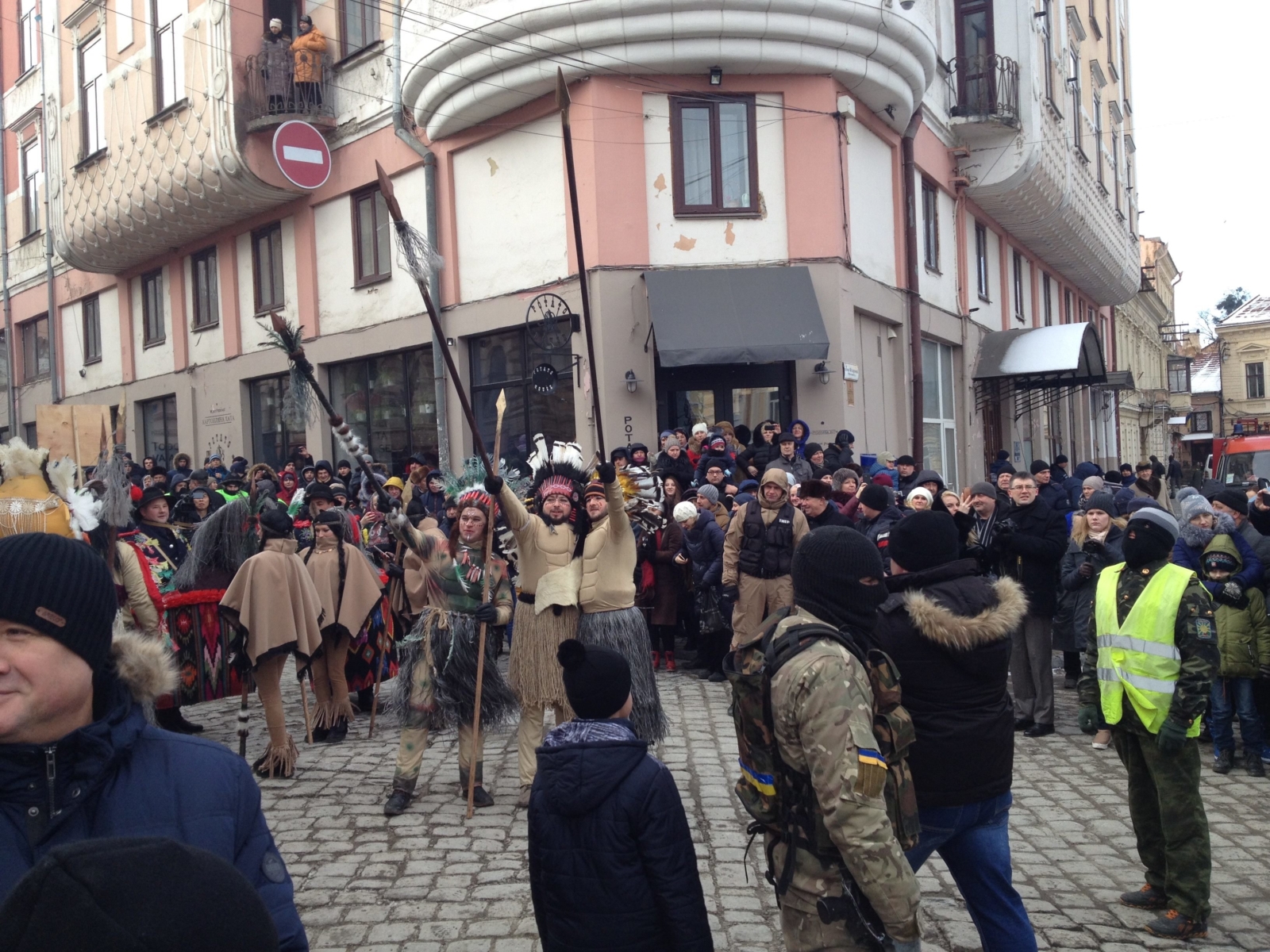Love, But Not for All

I’m in love with Ukraine. It’s a love that started as a child, with Ukrainian dance and culture sparking my interest. I fell deeper after I visited for the first time in 2014. I thought about my few short days here every day until I returned, three years later.
But even the greatest of loves have their problems.
I defend Ukraine, sometimes more so than my home country, Canada. I love the people, the culture, the atmosphere. I feel at ease, like I belong here. However it can be difficult standing up for a country when you don’t agree with all of its norms.
I moved to Ukraine in August 2017, starting my 11-month stay by touring the country with my Ukrainian dance ensemble. A fellow dancer opted not to join us due to safety concerns because he is gay. Being gay is legal in Ukraine, but same-sex marriage is not recognised. He heard stories of people in Ukraine being mistreated because of their sexual orientation. When the Lviv LGBT festival in 2016 was raided by bigots, threatening festivalgoers as The Guardian reported, this validated his fears.
Since living here, I have yet to notice same-sex couples in public. Of course, there are gay people here, but perhaps they don’t feel comfortable being themselves in public. I met one American in Lviv who is bisexual. He hasn’t had any problems and has gone on same-sex dates, but says he doesn’t “flaunt” who he is.
Imagine having to hide who you are, to have to think about every action, to ensure you don’t appear a certain way; a way society around you doesn’t fully approve of.
Times here are old-fashioned, outdated. This is also evident in gender inequality. I see more “chivalry” in Ukraine than Canada – men holding doors open, men walking women home after a night out, men carrying their wife’s/daughter’s/sister’s bags, including their purses, down the street after a day of shopping.
It’s not a bad thing when it comes from the right place, when people are being kind and it’s not because they think you can’t handle independence. It becomes a problem when people treat genders unequally.
A final point to touch on is cultural appropriation: theatre performances featuring blackfaced characters; people wearing sacred cultural symbols, such as Indigenous headdresses, out of context, like pop star Dzidzio and Malanka participants.
I celebrated Malanka in Vashkivski and Chernivtsi this year. It was an unbelievable experience, and something I’ve raved about that day to family and friends. Except there’s always a “but” when I tell the story. The but is that though it was a great day, some costumes were insensitive, including people dressed as Native Americans/Indigenous Canadians wearing headdresses.
Some argue these costumes are all in good fun, that people mean no harm. And even if they don’t know the history of oppression of indigenous peoples , ignorance isn’t an excuse.
Nobody is perfect. The same goes for countries. Reflecting on your country’s societal norms – and the oppressions that come with them – allows for growth and improvement, making your country a more lovable place for everyone. This piece is just that – an invitation for conversation.
“The Guardian reported”
https://goo.gl/c31qjs
Follow Kaitlin as she discovers Ukraine
Twitter: @kaitlinvitt
Instagram: @kaitlinvitt











